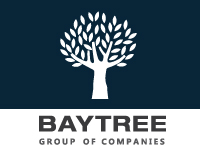CA
ON
조준상 (로열르페이지 한인부동산 대표)
전화: 416-449-7600
1993 Leslie St. Toronto, ON

캐나다 공인 컨설턴트 - 한인크레딧 컨설팅
전화: 416-897-8438
1 High Meadow Place, Unit 2 North York, ON

최고의 POS시스템 - 스마트 디지탈 POS
전화: 416-909-7070
4065 CHESSWOOD DR. NORTH YORK Toronto, ON
0.jfif)
변호사 정찬수 법률사무소
전화: +82 2-536-1144
서울특별시 서초구 서초동 Toronto, ON
1.jfif)
준비된 바이어 그룹 , BAYTREE 이너써클
전화: 416-226-5999
7030 Woodbine Ave. Suite 103 Toronto, ON

K-포차 ...미시사가(만두향프라자)
전화: 905-824-2141
169 DUNDAS ST. E. #7 Mississauga, ON

한인을 위한 KOREAN JOB BANK
전화: 6476245886
4065 Chesswood Drive Toronto, ON
.jpg)
홍이표치과
전화: 647-985-0456
9625 Yonge St #4, Richmond Hill, ON Toronto, ON
1.jfif)
골프 싱글로 가는길
전화: 647-291-2020
115 York Blvd Richmond Hill Toronto, ON

스마트 디지탈 프린팅 - 인쇄 및 디자인
전화: 416-909-7070
4065 chesswood dr. Toronto, ON
.jfif)
호남향우회 (토론토)
전화: 647-981-0404
7 Bishop Ave. #2411 Toronto, ON

놀부 - 한식/일식/중식
전화: 416-221-4700
3 Elmhurst Ave, North York, ON

It would be a place where all the visitors including me share the life stories and experiences through their activities,especially on life as a immigrant.
Why don't you visit my personal blog:
www.lifemeansgo.blogspot.com
Many thanks.
블로그 ( 오늘 방문자 수: 132 전체: 267,551 )
폭발적인 아편재배로 망하는 아프칸,
lakepurity
2007-08-27
금년도에는 기록적인 아편재배기록을 세워, 불법으로 거래되는 금액이 수십억 달러에 달한다고 한다. 탈리반 폭도들이 점령하고 있는 남쪽지방에서 수확량이 절정을 이루고, 그에 더해서 부패한 지방관리들이 이를 부채질 하고 있기 때문이기도 한다. 전국토에 17 % 에 이르는 193,000 헥타르에 재배됐는데, 작년도에는 165,000 헥타르였었다고 유엔관리들이 전했다.
이수량은 지구상에서 재배되는 아편의 총생산량 93%에 해당되며,이는 2년전에 비해 2배 증가한 양이라고 한다. 이지구상에는 이런 엄청난 양의 아편을 생산하는 나라가 없다. 다만 기록에 의하면 약 100년전에 중국이 생산한 적이 있었다고 한다.
마약 담담 RCMP의 설명에 따르면, 아프카에서 생산된 아편을 원료로 해서 만들어진 헤로인이 캐나다의 각 도시에서 불법으로 판매되는 양의 60%가 넘는다고 한다.
아편생산농장에 스프레이를 해서 멸종시킬려고 했던 미국의 주장을 아프칸 대통령 카자이는, 가축방목, 음료수 오염들을 이유로 반대했었다.
탈리반들의 자금줄이 되고있는 아편재배로, 아프칸의 앞날은 더 어둡기만 하다. 평화 유지군으로 파견된 캐나다군인들은 그 사상자가 유래없이 높아 가기만 하고..... 누구를 위한 전쟁이고, 누구를 위해 싸우는가?
Afghan opium production explodes
FISNIK ABRASHI
Associated Press
August 27, 2007 at 4:51 PM EDT
KABUL — Afghan opium poppy cultivation exploded to a record high this year, with the multibillion-dollar trade fuelled by the Taliban insurgency and corrupt officials in President Hamid Karzai's government, a UN report said Monday.
Afghanistan has opium growing on 193,000 hectares of land, a 17 per cent increase from last year's then-record 165,000 hectares, according to an annual survey by the United Nations Office of Drugs and Crime.
“The situation is dramatic and getting worse by the day,” said Antonio Maria Costa, the UNODC's executive director.
The country now accounts for 93 per cent of the global production of opium, the raw material for heroin, and has doubled its output since two years ago, the report said.
“No other country in the world has ever had such a large amount of farmland used for illegal activity, beside China 100 years ago,” when it was a major opium producer, Mr. Costa said in an interview in Kabul.
The report did not say how much of the opium gets made into heroin in Afghanistan before being smuggled out. However, an RCMP official said earlier this month that heroin made from Afghan opium now accounts for 60 per cent of the illicit drug on Canadian streets.
Mr. Karzai last year rejected U.S. offers to spray this year's crop after Afghans said the herbicide could affect livestock, crops and water supplies — fears the U.S. calls unfounded.
Mr. Costa said the UN supports the government's position, but added that crop eradication was a key element of any strategy to combat its growth.
Afghanistan is on track to produce 8,100 tonnes of opium this year, up 34 per cent from 6,000 tonnes in 2006, Mr. Costa said.
The farm value of Afghanistan's annual crop is about $1-billion (U.S.), the UN survey said. The street value of the heroin produced from it is many times higher.
While the number of poppy-free provinces in the country's north has increased from six in 2006 to 13 in 2007, production in the insurgency-hit southern provinces has exploded to unprecedented levels.
In Helmand province alone, 103,000 hectares are under cultivation accounting for more than half of the national total.
“The government has lost control of this territory because of the presence of the insurgents, because of the presence of the terrorists, whether Taliban or splinter al-Qaeda groups,” Mr. Costa said.
Before it was driven from power in the U.S. invasion in 2001, the Taliban strongly curbed opium cultivation. Now it uses money from the drug trade to help finance the insurgency.
“It is clearly documented now that insurgents actively promote or allow and then take advantage of the cultivation, refining and the trafficking of opium,” Mr. Costa said.
Taliban rebels levy a tax on farmers and also provide protection for convoys smuggling opium into neighbouring countries, Mr. Costa said.
Some 3.3 million of Afghanistan's estimated 25 million people are involved in producing the opium, according to the report.
Mr. Costa said there was a “tremendous amount of collusion” between traffickers and government officials.
“The government's benign tolerance of corruption is undermining the future: no country has ever built prosperity on crime,” Mr. Costa said in a summary of the report.
Gen. Khodaidad, Afghanistan's acting counter-narcotics minister, acknowledged that the counter-narcotics strategy has failed in the country's south and west, which he blamed on bad local officials, poor policing, failure in eradication and open borders with Iran to the west and Pakistan to the east.
Gen. Khodaidad, who like many Afghans goes by only one name, said the government needs to review its strategy at an upcoming national conference Wednesday.
He said inefficient and corrupt local officials should be threatened with dismissal and those who curbed the production and trade should be rewarded.